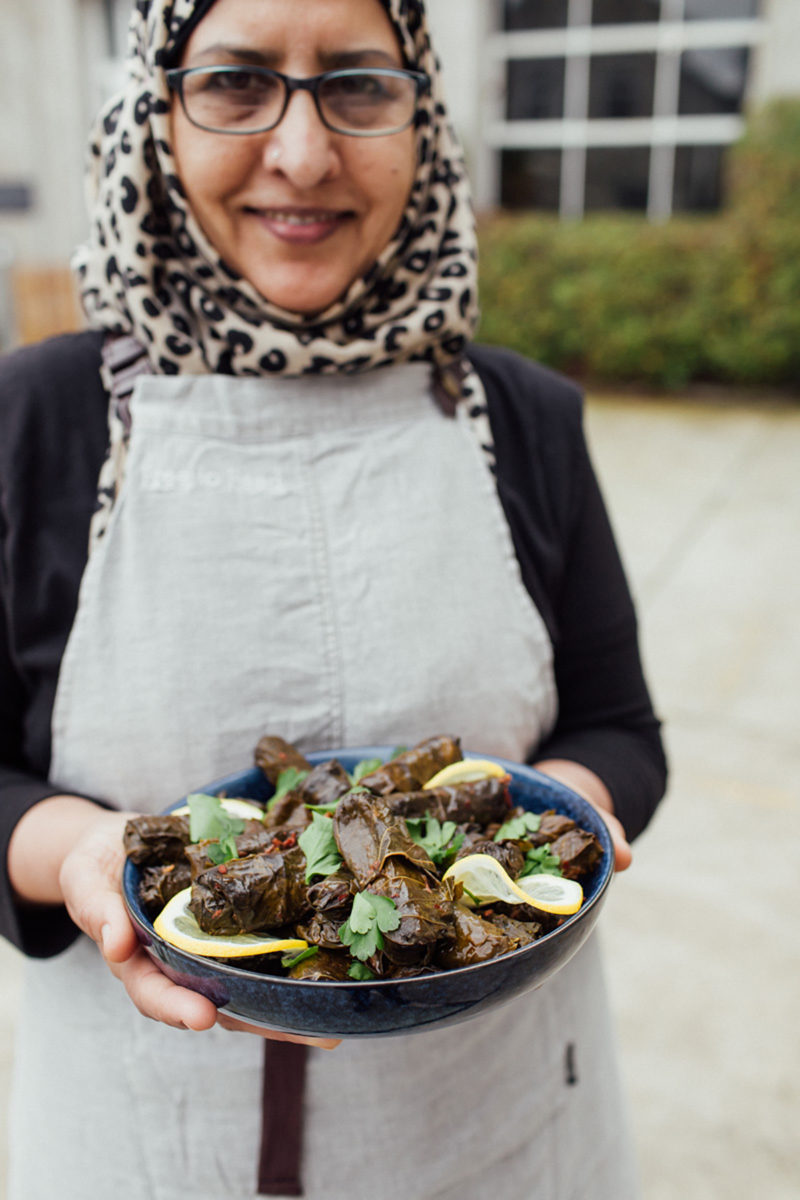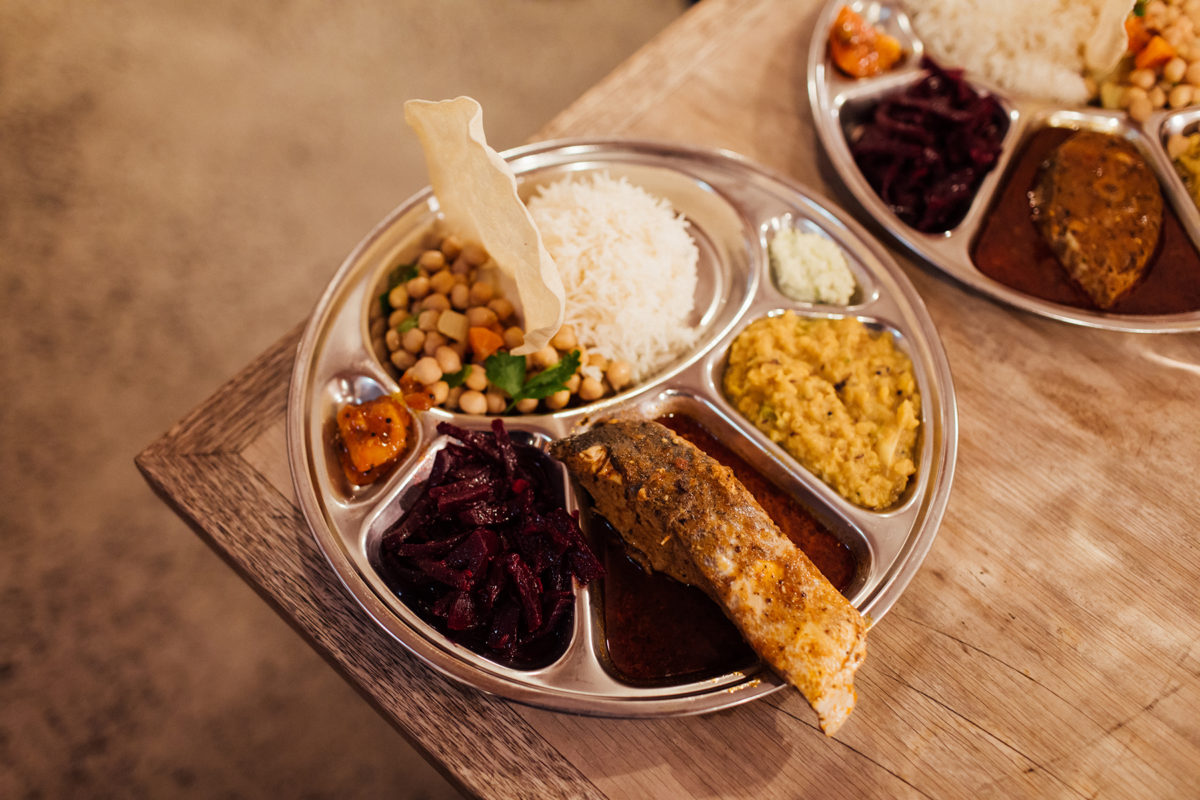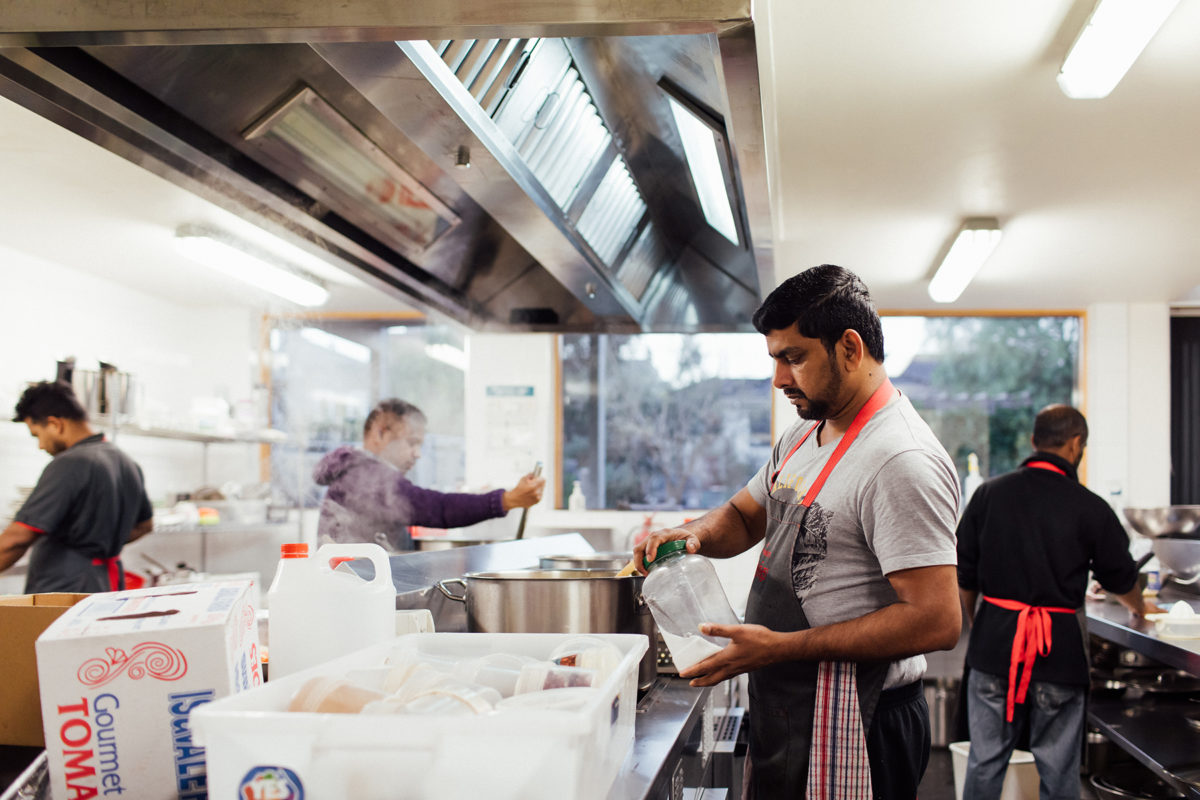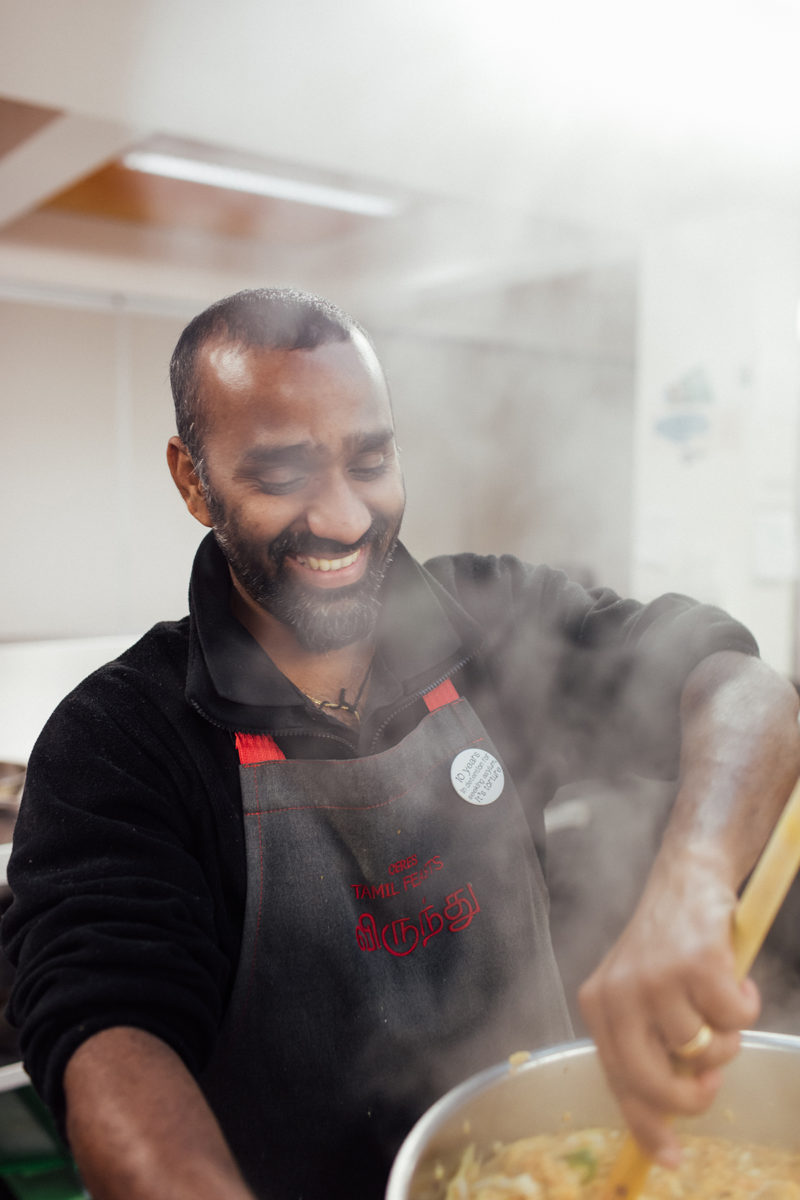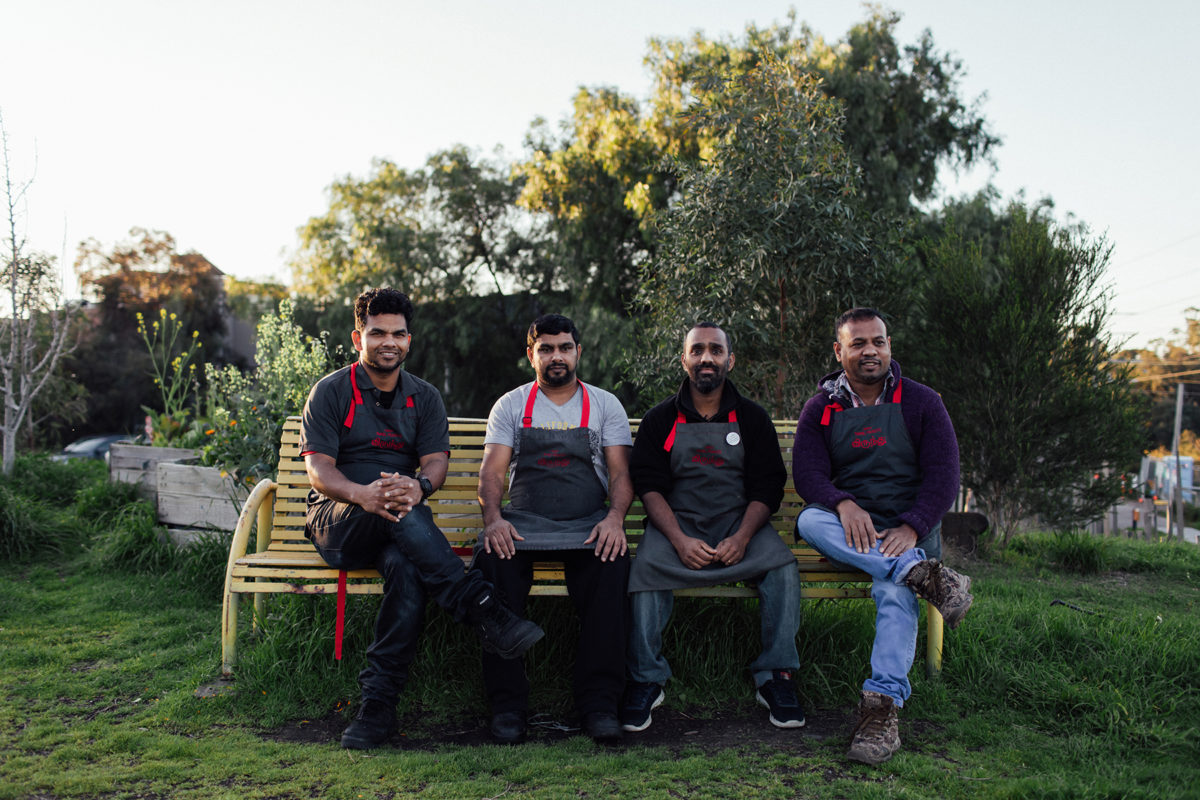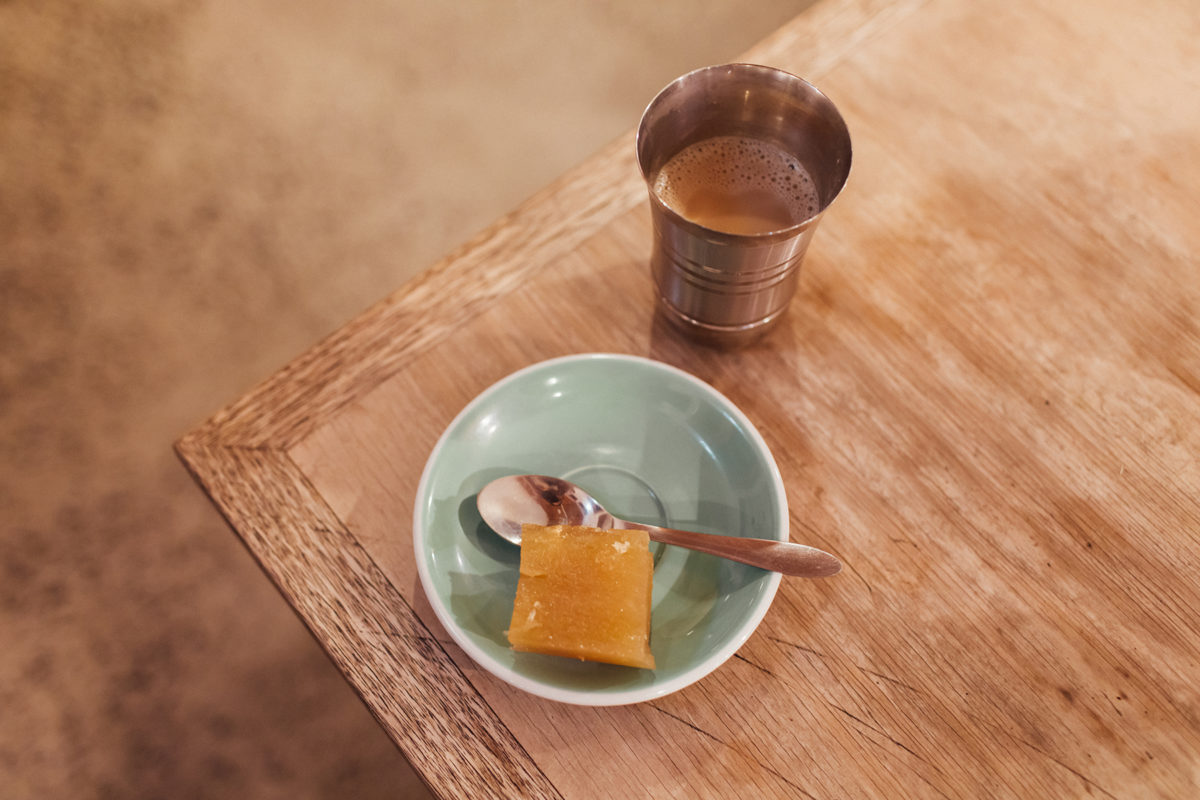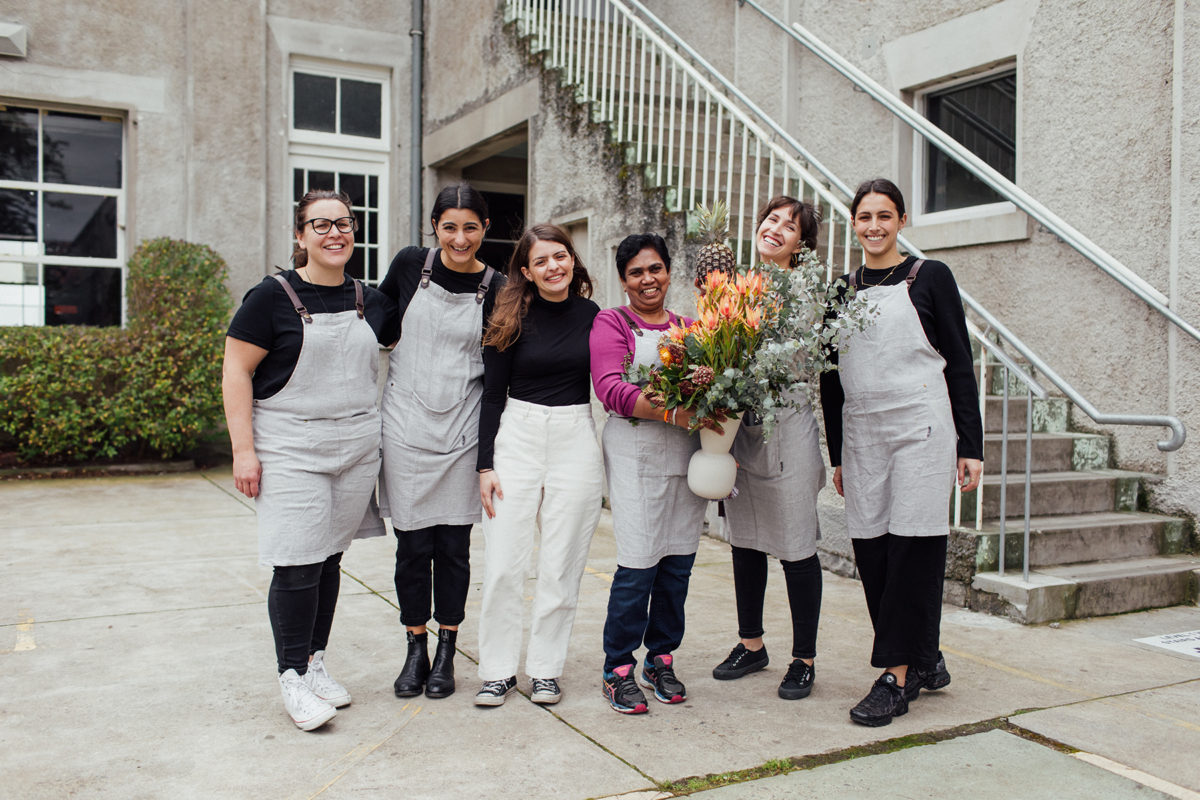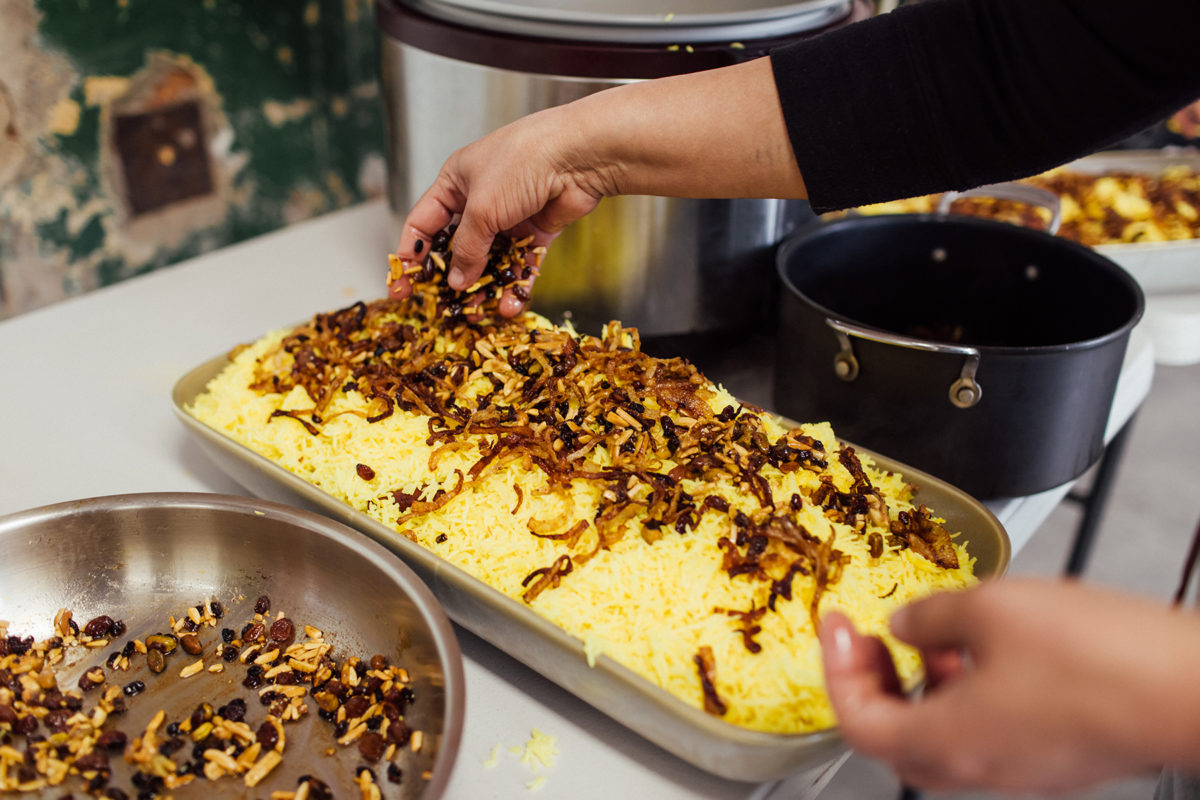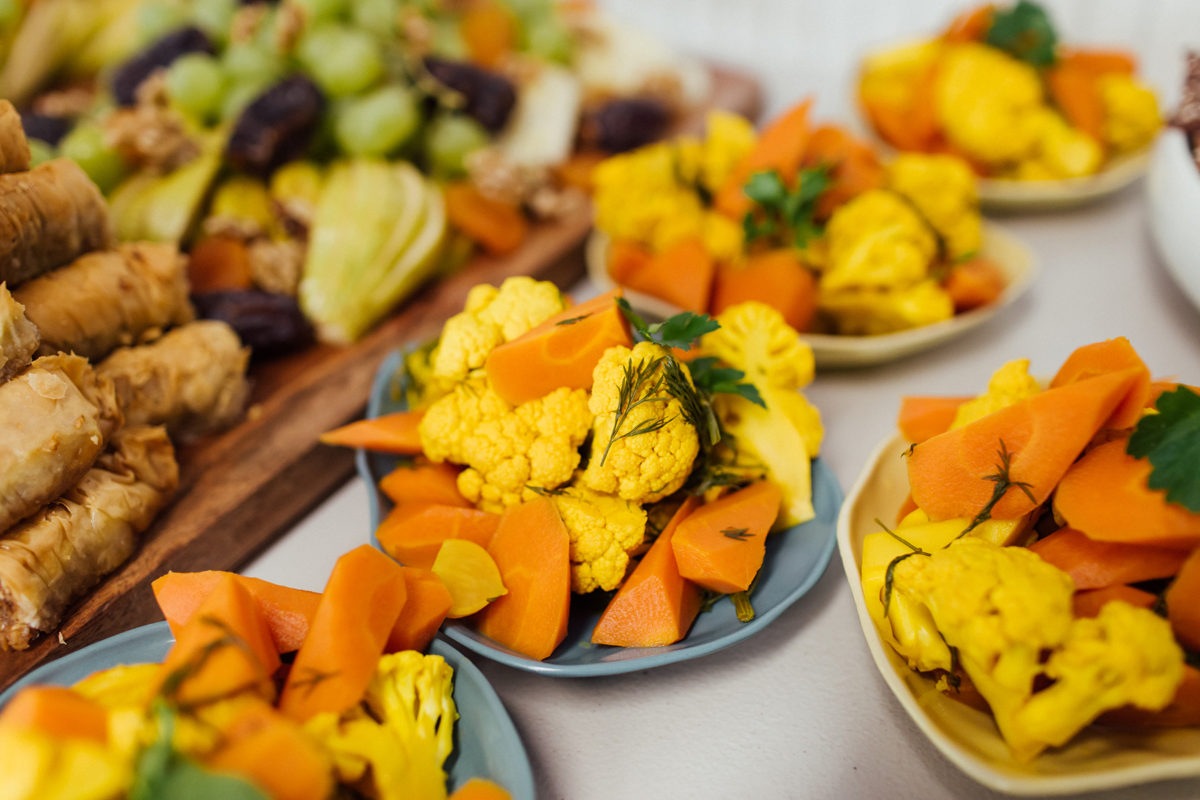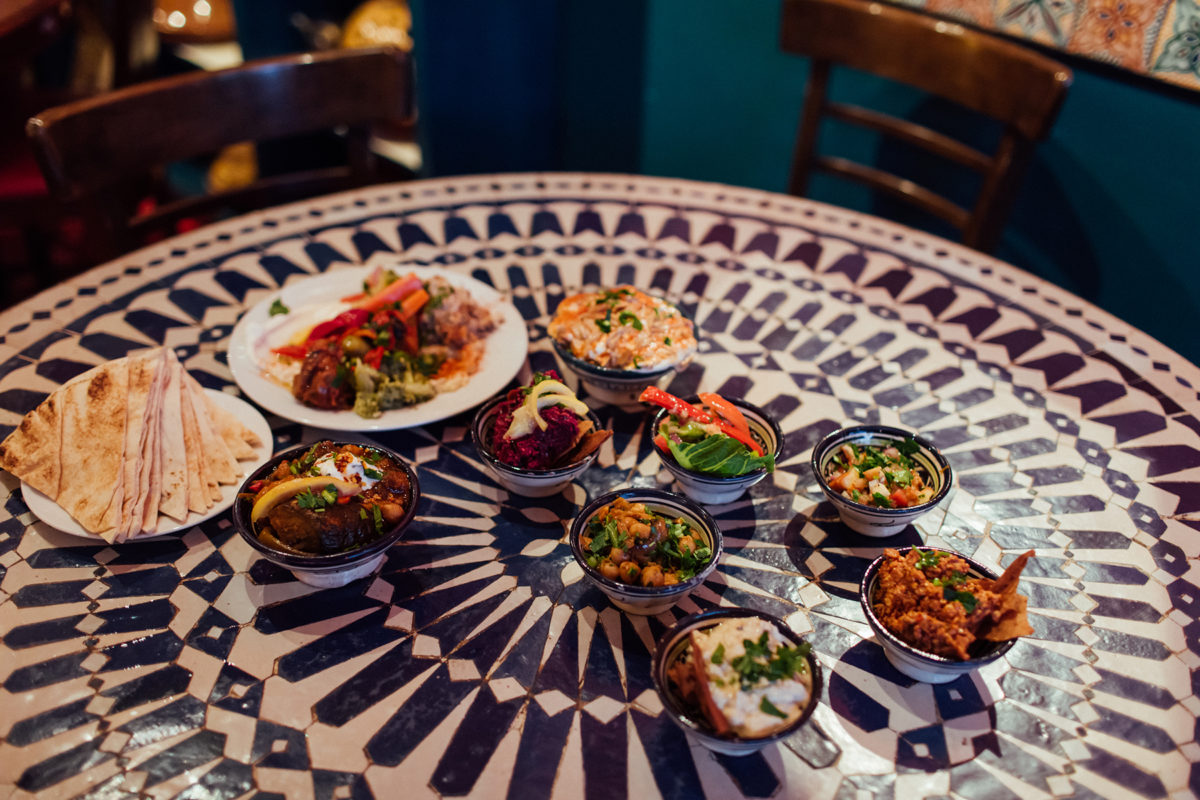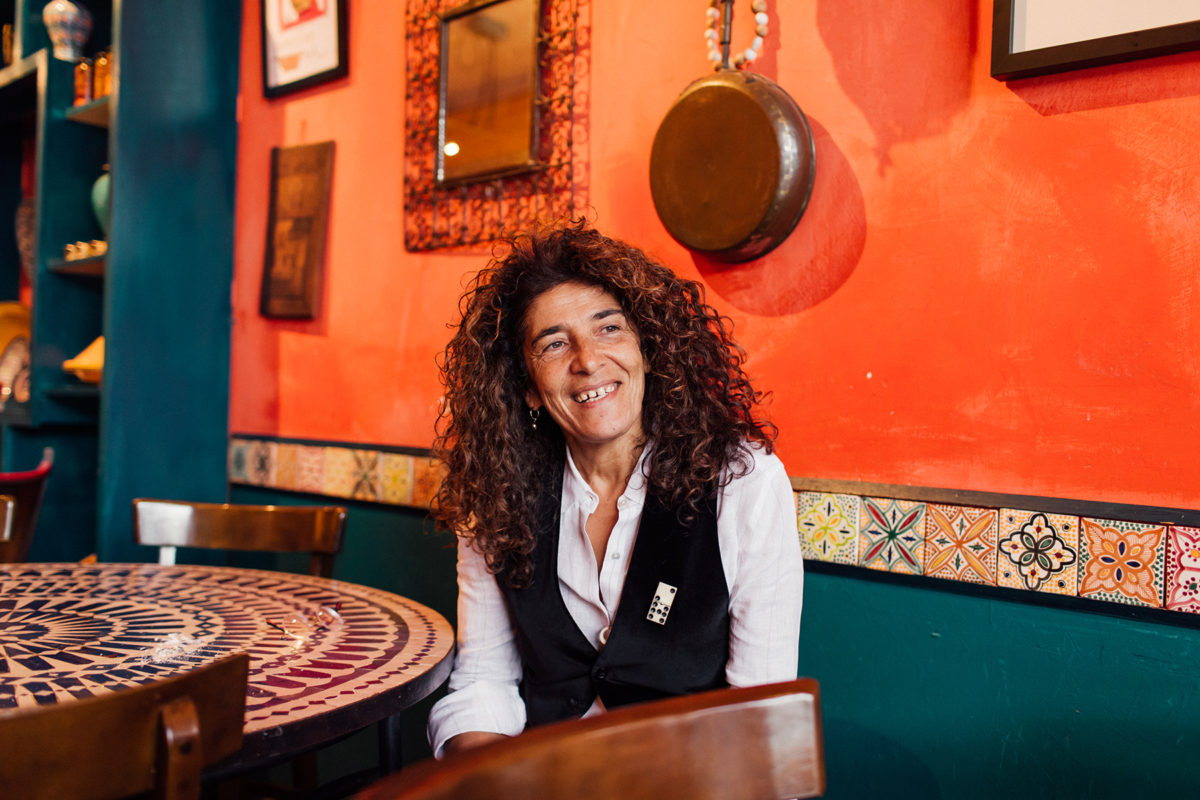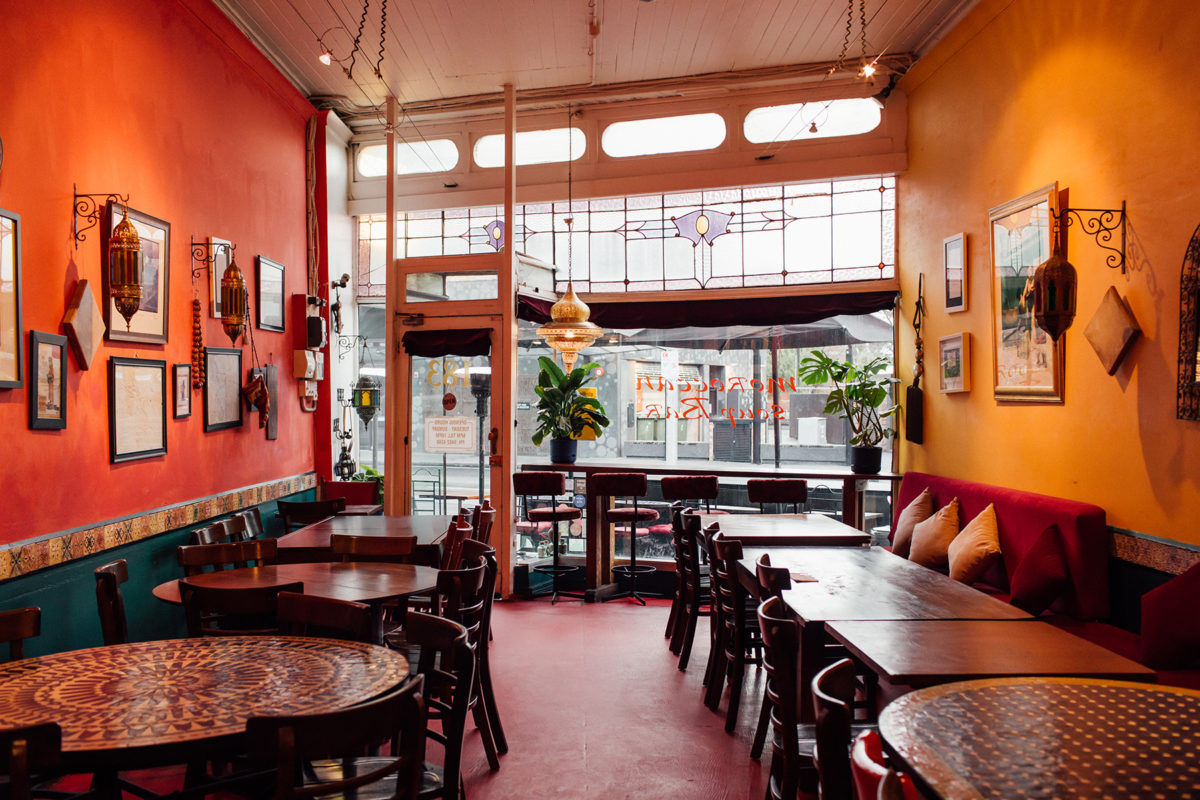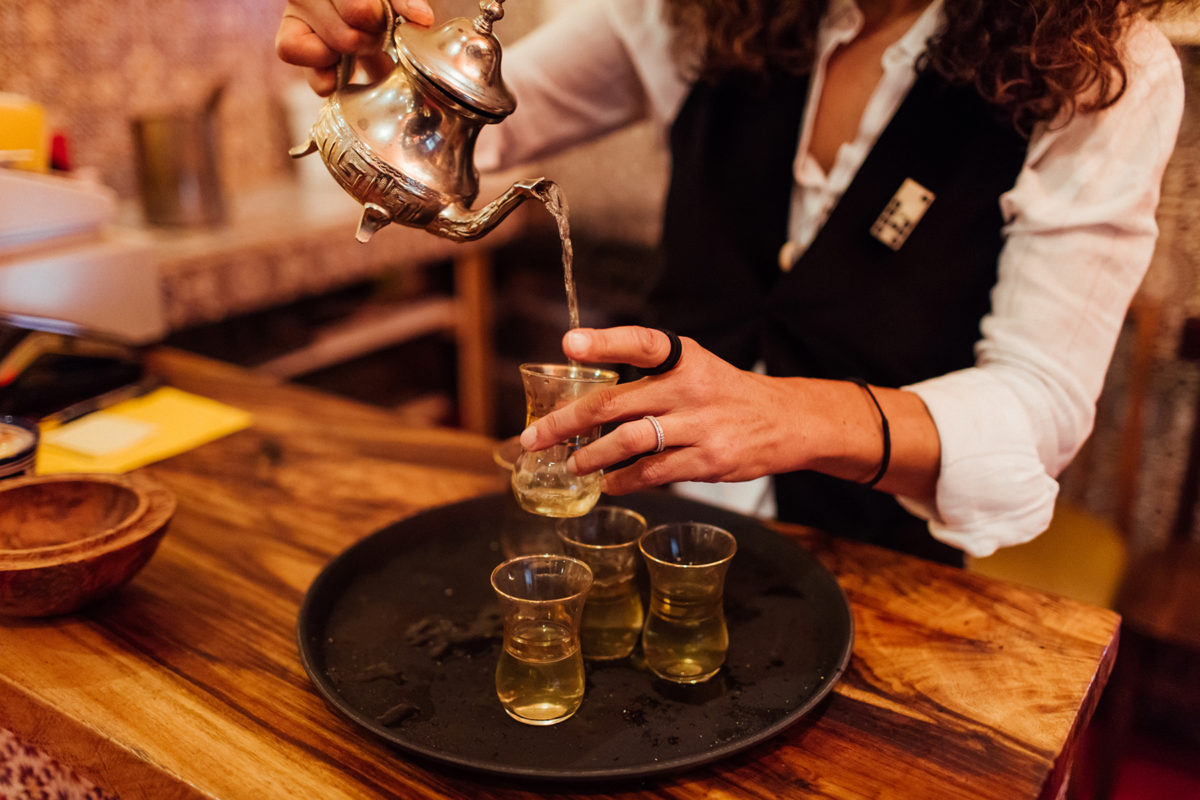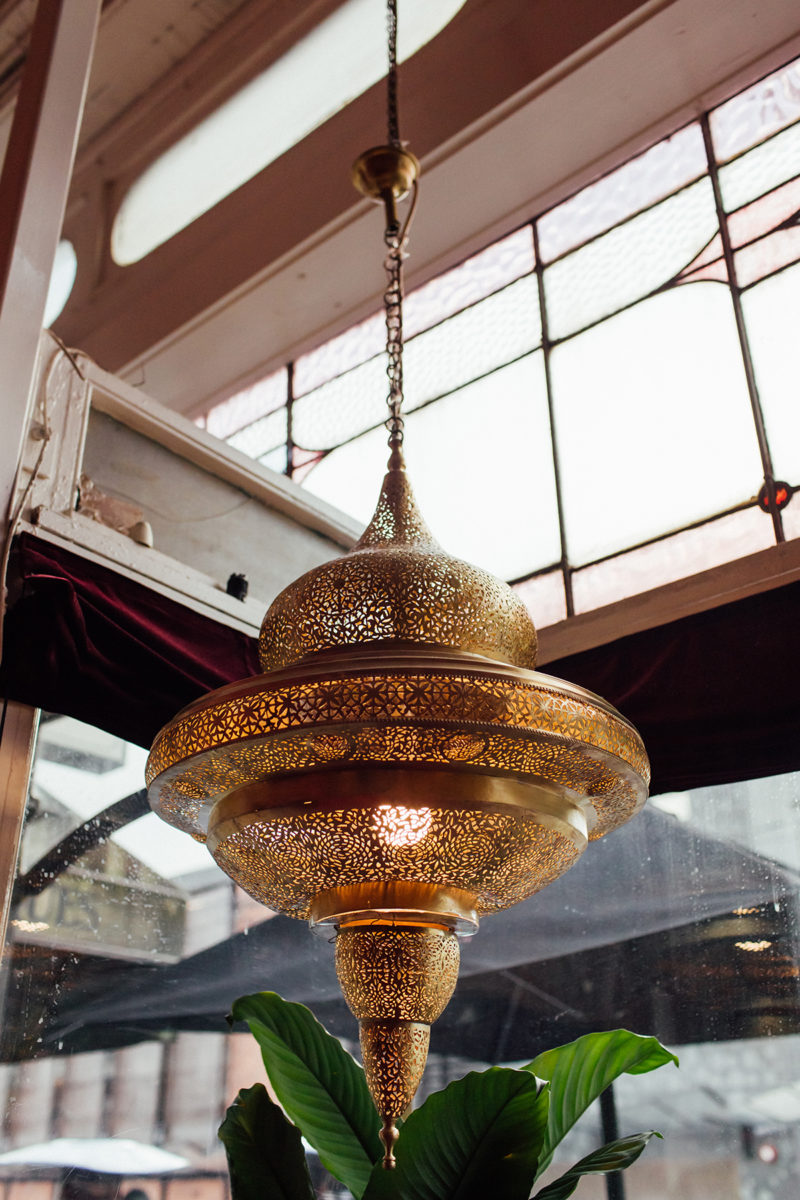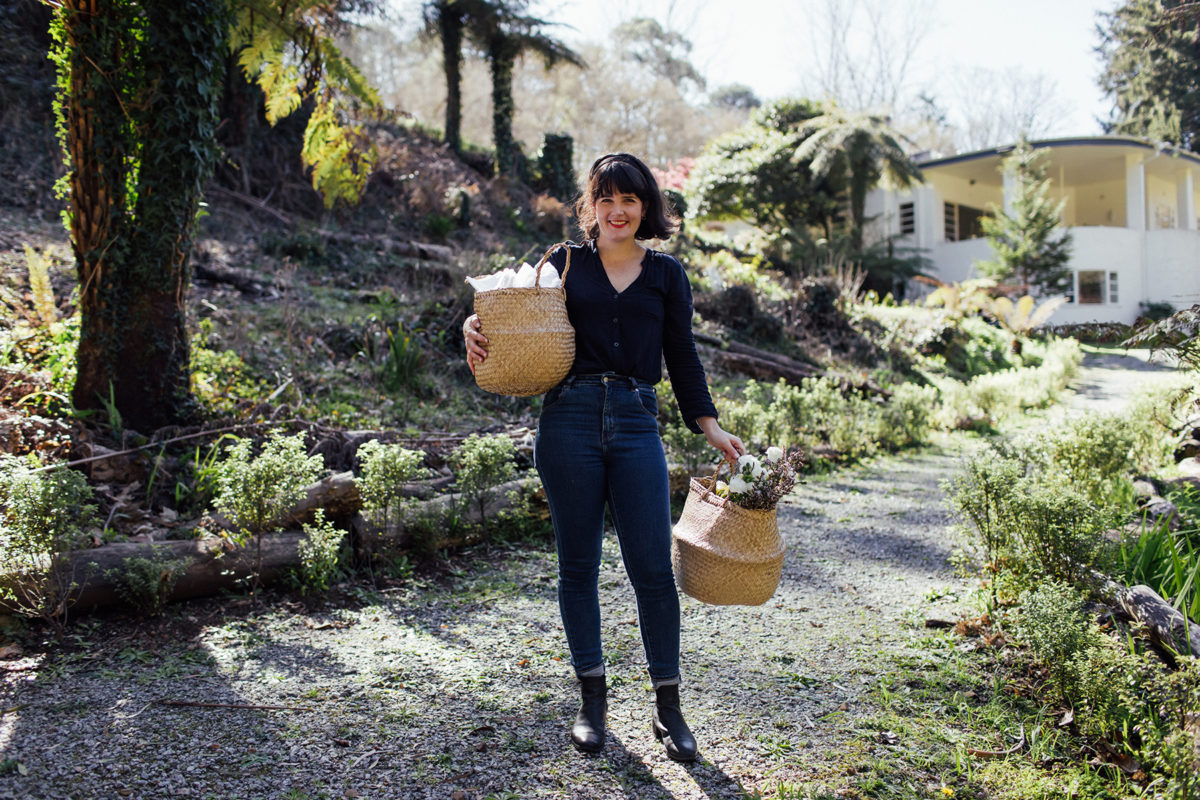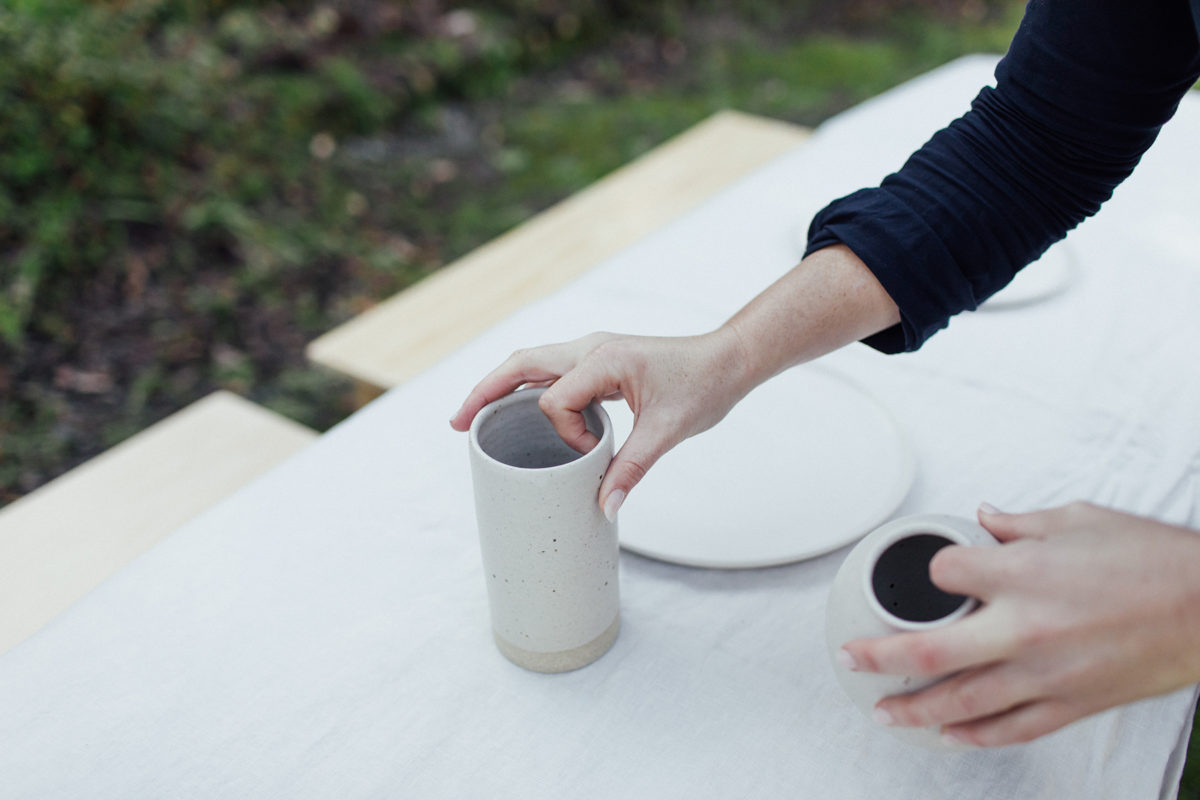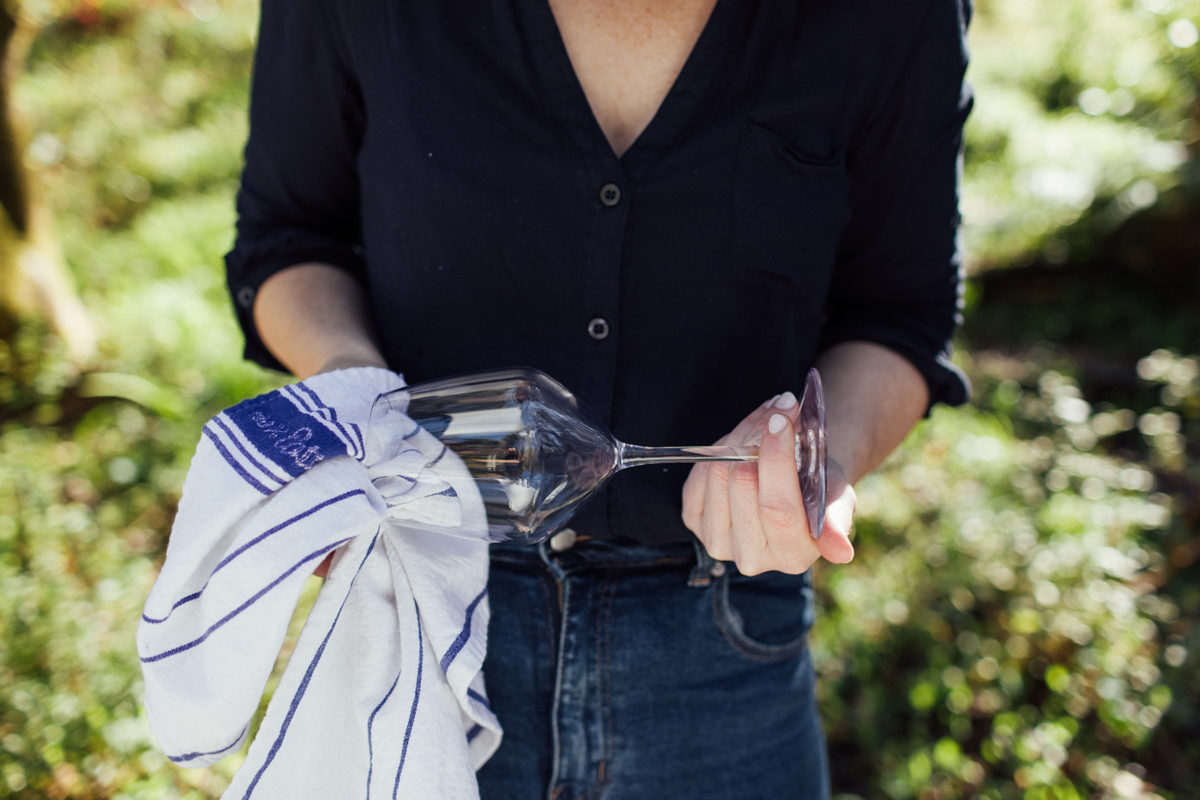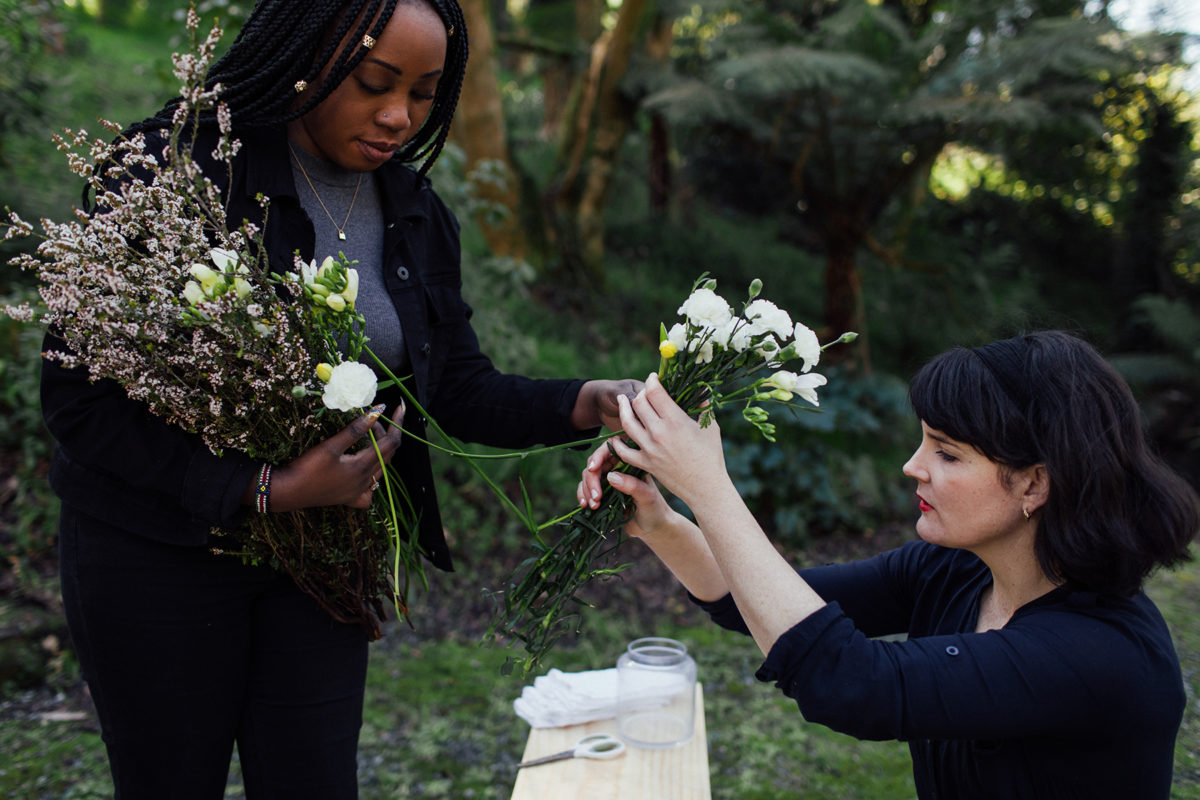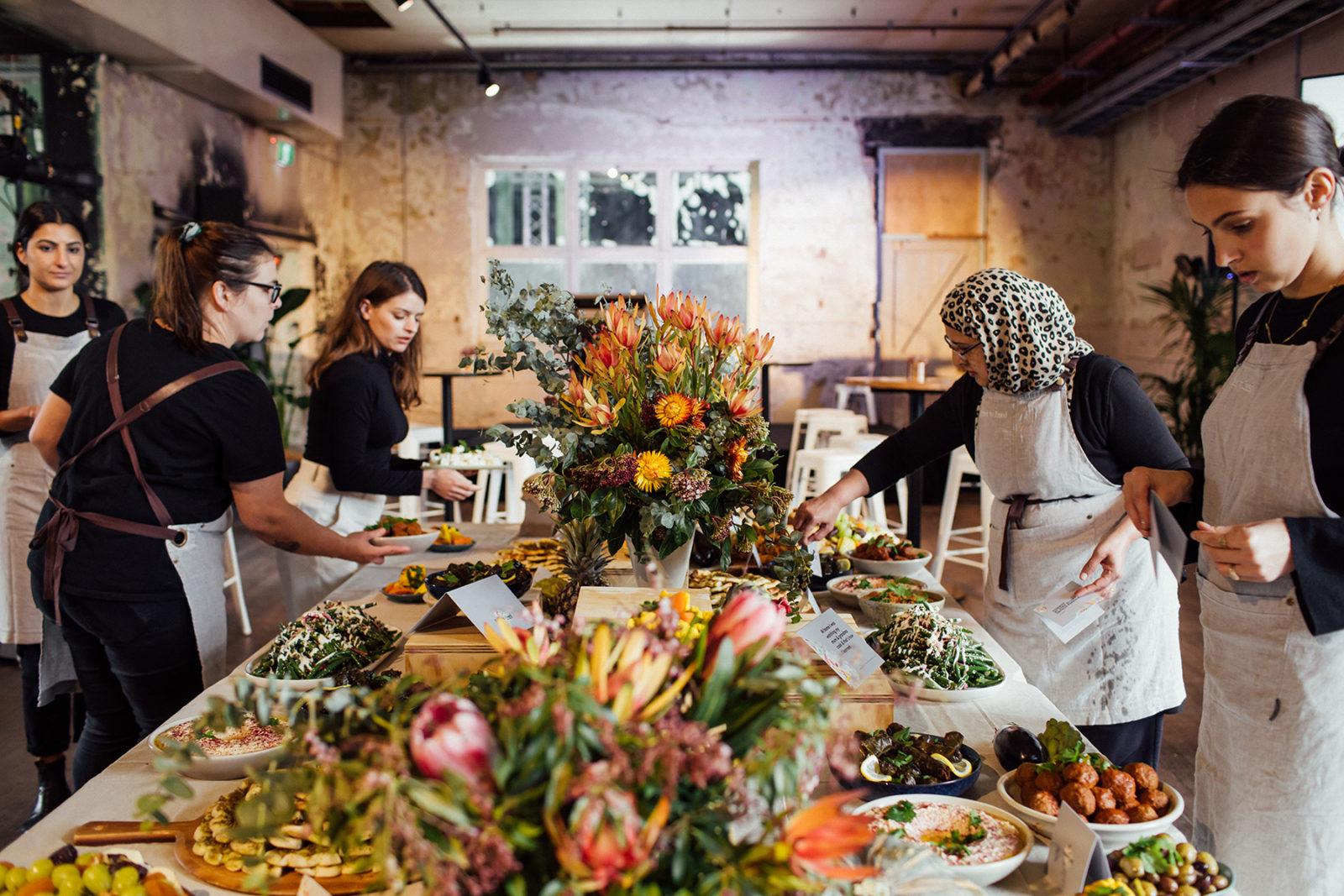
In Melbourne, 4 Food-Focused Social Enterprises Combating Xenophobia
Author: Ally Betker and Emma Glassman-Hughes
Photographer: Anne Moffat
Lead image: Free to Feed founder Loretta Bolotin, third from left, preparing to cater a conference in Melbourne with her team.
When we traveled to Australia earlier this year, we learned firsthand how Melbourne is a city of delightful surprises. Pull back the curtain and you’ll be rewarded with everything from hidden laneway bars to the world’s cutest tattooer.
But perhaps most surprising of all was the sheer density of social enterprises scattered throughout the metropolitan area, serving food with a purpose far greater than just being tasty (though let’s be real, that’s a noble cause all its own).
Given Australia’s unusually harsh immigration policies, we decided to connect with four particular social enterprises that are combating xenophobia through food, offering support and community to refugees and new arrivals who have endured immense hardship to reach Australia’s shores. These are the eateries in Melbourne that will fill up your soul and your plate.
Melbourne’s Best Food-Forward Social Enterprises
Tamil Feasts
At first, a dinner with Tamil Feasts feels like any other supper club experience. There’s a crowd of well-dressed urbanites sipping wine. There are lavender sprigs in tin cups and other elegantly minimal table decorations. The energy is relaxed and casual—multigenerational families are interspersed; young couples are on steamy dates.
But the four men in the kitchen, while supremely talented, are not the hottest new chefs on the scene. They’re recently settled asylum seekers from Sri Lanka who first learned to cook while imprisoned in detention centers around Australia. Their project, Tamil Feasts, is hosted at the Merri Table Cafe three times a week by CERES (pronounced “series”), a “not-for-loss community business” that runs environmental education programs and several social enterprises, including a nursery, grocery store, cafe, and garden, in Brunswick. And while the dinners are altogether joyous occasions, the circumstances that brought each of the chefs to the kitchen are tragic.
Read more about Melbourne’s nine best international restaurants.
Nigethan Sithirasegaram, the head chef who made the goat curry the crowd is devouring, spent six years in a detention center. In 2009, he fled Trincomalee on the northeast coast of Sri Lanka, where his wife, infant son, father, and mother stayed behind. Since his release in 2015, Sithirasegaram has still been unable to return home to visit them because leaving Australia would be breaching the stipulations of his visa. In spite of the distance, he talks to his now 12-year-old son on the phone every day.
“’Through our feast, you can hear our story.’”
At the cafe, the men cook each night’s feast together. Before the meal is served, one of the four gives a short speech about their personal history, the history of Sri Lankan conflict, and the food that’s been prepared for the evening.
“Through our feast, you can hear our story,” says Nirma Murugamoorthy. “We’ve gotten a lot of support from the Australian community. It’s a relief of mind to share our stories.”
Three years after his release from the detention center, Murugamoorthy got a small tattoo that says “adventure,” a token that he hopes will manifest in his life someday soon. “I wish for freedom,” he says about the tattoo’s origins, “but I still feel nervous. They could cancel my visa at any time.” At least for now, stuck in the limbo stage of his migration, new adventure is not so easily attainable.
“‘Here it feels like we’re flying.'”
But there is hope. With a training program that started in August and a new pop-up spot every Saturday at the CERES Makers & Flea Market, Tamil Feasts is expanding its reach—which means more support and more opportunities for people like Nigethan, Richman, Nirma, and Niro. “I spent six and a half years in darkness,” Murugamoorthy says. “Here it feels like we’re flying.” —EG-H
Free to Feed
It’s a Thursday morning, and 15 or so people from Malaysia, Iran, Iraq, Sri Lanka, and Pakistan are gathered around Kay-Lene Tan, the head pastry chef at Tonka and Coda, two of Melbourne’s top restaurants.
“What desserts does everyone like to cook at home?” Tan poses to the group.
“Baklava!”
“Sponge cake.”
“Jalebi!”
The answers are as diverse as the room, and a good representation of Free to Feed, the not-for-profit that has gathered everyone here. “Free to Feed is a social enterprise empowering refugees and people seeking asylum, and encouraging inclusive community attitudes through shared food experiences,” says Loretta Bolotin, the cofounder. The program, which Bolotin launched with her husband, Daniel, in 2015, facilitates economic participation through paid training, employment, and work experience. The 30 people they work with each year rotate through cooking in the kitchen, catering events for businesses in the city, managing events, and teaching cooking classes to the public. In addition, they receive training from industry experts, like Tan.
“Each month these guys get access to food industry professionals who volunteer their time to host a training session with them to help build their CVs, build their skills,” says Bolotin. “It’s all part of our offering, that they get to walk away being connected, networked, and skilled.”
Just as important as their connection with Free to Feed’s experts is the connection program participants build with one another. Though their ages range from 25 to 55, members of the group greet one another with hugs when they come in for the day’s training. They’ve been in Australia anywhere from one to five years, and this community is critical to their transition.
“It’s a roller coaster,” says Farida Poonawala, who’s from India and has been in Australia for one year. “It started off being pretty bumpy, and then it kind of evened out after six months. But the first six months were pretty hard.”
Poonawala left what she calls a restrictive Muslim culture in India after she had her daughter. “I wanted to get her out of there and let her grow in a place where she could have freedom,” she says. “I joined Free to Feed wanting to start my own business.” Like many of the participants, Poonawala wants to share the food of her culture with Australia—a way of bringing the good parts of her home country with her, and leaving the ugly parts behind.
“‘My dream is to cook. And now it’s coming true.'”
For these refugees and asylum-seekers, the ultimate goal is to make a living by sharing the meals they enjoyed at home, before arriving in Melbourne. Free to Feed’s first-ever cooking instructor, Hamed Allahyari, actually secured funding for his own restaurant, called Cafe Sunshine, after teaching 200 classes for the nonprofit. The restaurant—also a social enterprise that trains and employs refugees and asylum-seekers—is a way of reclaiming his identity: Hamed owned a restaurant back in Iran.
Manel Krishnan, who’s from Malaysia and teaches a recipe for green chicken chili in her weekly cooking class for Free to Feed, is another success story.
“My dream is to cook,” says Krishnan. “And now it’s coming true.” —AB
Moroccan Soup Bar
Hana Assafiri has to shout over the racket of her bustling café even though she’s sitting right next to me. It’s dinnertime in North Fitzroy and every table at Moroccan Soup Bar is full. The room swells with the chitchat of people savoring Assafiri’s vegetarian feasts in the dim, orangey light of Moorish lanterns; chickpea bakes and tagines are firing in the back as servers sling pitas and dips to each seated group. The environment is a little chaotic, but as it turns out, animated dinner conversation is exactly what Assafiri wants to foster.
“‘The most vulnerable in society find refuge in our establishments.'”
Moroccan Soup Bar and Moroccan Soup Bar Two Go, the takeaway-only sibling down the street, use food and cooking to uplift women—especially Muslim and indigenous women, migrants, asylum-seekers, English language–learners, and survivors of abuse. “The most vulnerable in society find refuge in our establishments,” Assafiri says. “When you lift and enable women across the intersection of experience, we progress the entirety of society.” In every realm of the now 22-year-old business, Moroccan Soup Bar operates under Assafiri’s inclusively feminist principles. To preserve oral tradition, there are no written menus; she invests $1,000 monthly to properly compost; and guests sit at communal tables, each one named after a different influential woman from history (we’re currently seated at Frida Kahlo).
Everything about Assafiri gives me bruja energy, like she should have been a mystic in a past life. Her spindle-like curls frame her angular face in a big halo; I feel that I have to count the emotional depth behind her eyes in leagues, like the ocean. Before opening Moroccan Soup Bar, Assafiri worked in crisis intervention for over a decade. She was born in Australia to immigrant parents but moved back to her mother’s native Lebanon when she was four. It was there that a young Assafiri began to endure sexual abuse at the hands of an extended family member; but a return to Australia only resulted in a continued cycle of abuse, which she discusses at length in a segment of the Australia Broadcast Channel series One Plus One.
“I think everybody has their thing in life,” she says. “Having lived through adversity and personal trauma, I discovered really early on what my thing is. Adversity became an opportunity for me.”
And she turned that opportunity into an opportunity for others, too. Assafiri employs roughly 40 women between her two restaurants. She started a program called “Speed Date A Muslim” to counter Islamophobia. At Two Go, she built a reading room that houses books by and about women as a resource for the community. (In it, Sappho sits side by side with the Kosher Modern Cookbook.) After 22 years of work in hospitality, she’s more than a cook, a business owner, a mother, a survivor. She’s Melbourne’s conscience—always asking her city to open more doors and to access more empathy. —EG-H
Merchant Road
Jane Marx is a few minutes late to King & Godfree on Lygon Street in Carlton. She promptly orders a glass of wine, demurely telling the waitress, “thank you, I needed this today,” upon its arrival. Marx is busy. “I hate when people are like, ‘Oh, I’m so busy.’ Like, everyone’s busy,” she says. But following two big pieces of press on her new catering company, Merchant Road, she’s actually, like, really busy.
Marx ran a social enterprise cafe called Long Street Coffee for three years, and, after securing government funding for a fully not-for-profit venture, sold the for-profit portion of the business in May 2018. Thanks to the funding, she’s since pivoted to a charitable event-planning company under the name Merchant Road.
Merchant Road employs young women, ages 18 to 24, from minority and refugee backgrounds. Historically, women refugees experience higher rates of unemployment than their male counterparts. The company partners with the Centre for Multicultural Youth to pull recruits for the program, which has recently been formalized into an eight-week paid training period for groups of seven called Many Hands.
The inaugural class completed the program over the summer of 2019, learning from some of Melbourne’s top chefs and creatives, including experts from Market Lane Coffee, who taught barista skills; Cecilia Fox and Candy MT, who ran floristry workshops; and front-of-house service training delivered by Milieu Hospitality.
“‘We are hopeful that the skills they have will be able to overcome prejudice.'”
The group, which included women from Ethiopia, South Sudan, and Somalia (some were born here; others were resettled refugees), ran events for architecture firms, interior designers, artists, and like-minded ethical brands over that term, securing real work experience in the form of a long-table dinners, culminating in a large dinner party open to the public. With the help of Merchant Road’s three staff members (there are more during the busier spring/summer season and for big events), they supported client management, booked photographers, styled and managed the event, and collaborated with chefs to write menus and wine lists.
“There’s no notion of charity in terms of the product that we deliver,” says Marx. “Ultimately that best serves the young women who we work with, because [the general public knows] what our standards are like and it actually means that they are highly employable after what is a relatively short period of time. We are hopeful that the skills they have will be able to overcome prejudice.”
By running a not-for-profit business with the same standards as a for-profit business, Marx is not only setting up her recruits for success, she’s teaching them to take pride in their work.
“There’s a tendency in social enterprise to put young people, and people from refugee and migrant backgrounds, through training programs that aren’t that inspiring,” she says. “It will be like, here’s OHS [Occupational Health and Safety], this is RSA [Responsible Service of Alcohol]. These are all important things that you need to know to get employed, but ultimately it isn’t necessarily going to guarantee a job, and it doesn’t make a lot of young people feel very inspired.”
Marx recalls the moment when she realized her program was leaving a lasting impact. A young woman from Iran who had been in the program for two months went out for a job interview at a restaurant, and came back after the trial to say that she didn’t want the job—they didn’t even polish the carafes. “It seems like a small, fickle thing, but that really was quite a meaningful moment for me,” she says. “We realized that the way that we can serve the young women that we work with is by giving them the confidence to walk into a place and be like, ‘This is how you should be doing it.’” —AB





